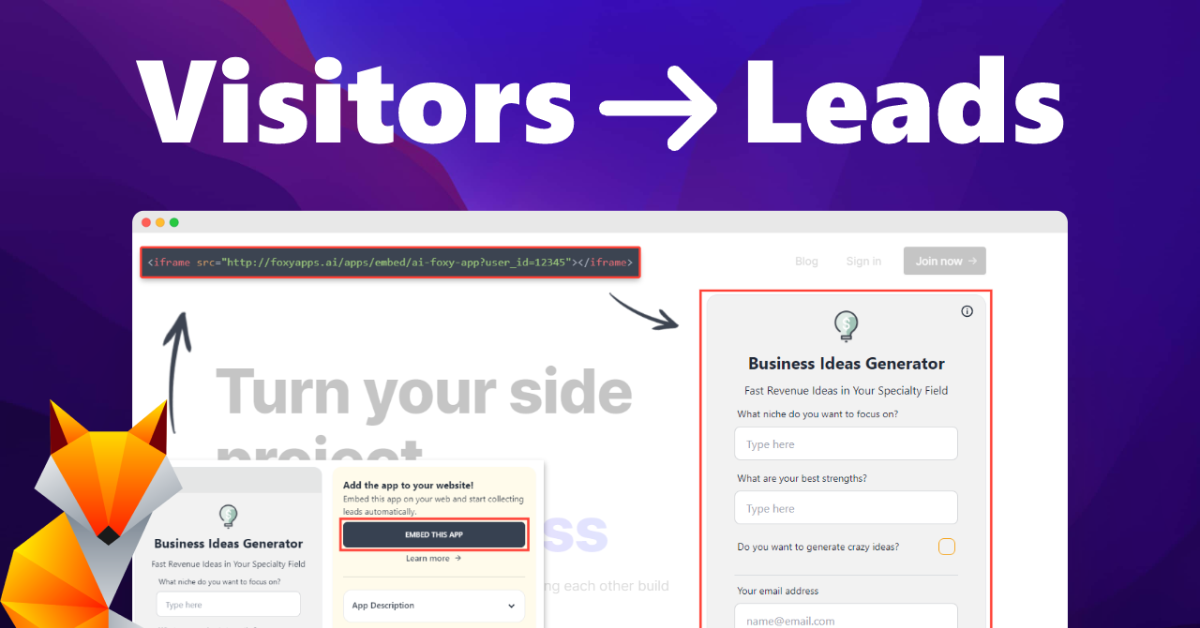
How to overcome struggles in your startup journey
Most of us experienced that feeling when you just don’t know what to do next. It is normal to have this issue. But the important is to face this problem and overcome it.
Based on our recent research made with indie hackers joining our community, we found out that many people find it hard to focus, lack an important skill, or are just stuck.
In this blog post, I go through project stages and advise on how to move your project during each phase smoother.
Idea stage
The struggle here could be the lack of project ideas. I had the same problem a while ago. I wanted to work on my projects, but I was unsure if my ideas were worth doing. I decided to create a workshop with my colleagues and friends and generate as many ideas as possible.
It helped me come up with some new ideas and evaluated all of them based on set criteria.
If you need help with idea generation and valuation, I wrote about this workshop on this blog.
Almost 50% of Indie Hackers in our survey said they are in this stage. They got an idea and would like to create a business out of it.
The most common problems they have are:
- It’s hard to focus; they are just stuck: 33%
- They miss an important skill: 25%
- They need more time: 30%
I agree it’s hard to focus when you are creating your project. Basically, you got no boss, and no one is pressing on you. And, it’s easy to get stuck, too.
I overcome this problem by sharing my progress with others. I like sharing all achievements even if it’s only a cool discovery or a great chat/call with an interesting person.
The other thing that helps me a lot is a shared to-do list. Every Monday, I and my friends from our community plan weekly to-do lists. We evaluate it at the end of the week. Everyone sees what you have done for the past week. They are celebrating progress with you, and are willing to help if you struggle.
If you think you miss an essential skill for this stage, think again. You only need a basic PC knowledge to start. Creating a landing page, writing, or talking to people doesn’t require any specific skill. If you think too far into the future and are afraid that you won’t be able to develop or sell your project, you should probably team up with someone who likes the idea.
Learnings
- Don’t waste time thinking about ideas. Just start with something and learn on the go.
- Focus on ideas in a field you are interested in. It’s a long game. Use your know-how and experience and keep educating yourself.
- Share your progress and celebrate each milestone with your friends or a community. Enjoy building new projects, have fun.
MVP stage
Great, you have built something already. It’s time to get feedback, validate the idea, and sell. We found out from our survey that over 70% of Indie Hackers struggle with marketing and sales in this stage.
That means they either don’t know how to reach their target audience or nobody is interested in their product.
Let’s focus on the first case because if nobody wants your project, you should move on to the next idea or pivot the idea based on the received feedback.
You need to understand who is your target audience. I recently published a milestone on IH, got over 1000 views, and 400 website visits but no sales yet. However, I’m okay with that because I understand that’s not our target audience in this stage.
Instead, I reach out to the right people on LinkedIn or Twitter one by one to get high-quality feedback and convert them into paying customers.
Learnings
- It’s very important who and how you are asking for feedback.
- Do things that don’t scale. Create a list of your target groups and reach out to them manually.
- Don’t hesitate to pivot the idea other direction if you find an interesting problem you can solve.
Growth stage
The last phase I’m going to cover in this article is your project’s growth. I suppose you have paying customers, and you were able to find a market fit with your product. It’s time to boost your sales.
It’s quite difficult for solo founders. I admire people like Danny, Jen, Jon, or Hakr. They are kind of unicorn founders to me. It’s tough to take care of everything by yourself. I mean product development, marketing, support, etc.
One day, I would need to ask them how they do it. For now, let’s look at two common use-cases.
You are a developer, and the struggle you might be facing here is a lack of sales & marketing skills. Development is your passion, and you would rather write code than an email to a potential customer.
Find a co-founder, salesperson. I know it’s easy to say, but it’s very hard to do. You don’t want to give up shares in your project to some random people. There should be a process of getting in touch, discussing the marketing plan, and finding someone who truly believes in your idea. I suggest setting some sales KPIs and give an option to receive a project share based on results.
Another interesting option is an affiliate program. Let other people sell your product. Many content creators have built their audience, and it can be a win-win situation for both of you.
If you are a salesperson, you may be missing someone who takes care of the product. Developers are usually busy working on their projects or having full-time jobs. The problem is: how to motivate them to join your team and work with you?
If you want to persuade a developer to join your startup journey, you can use this advice:
Show the numbers
You can’t ask someone to work on your idea for x months because you think it will work. Your idea has to be validated. You need to have a clear vision of your project. It’s great to have some customers already or an audience you have built.
Don’t force a developer to your technology
Let them decide what tech stack to use. If you have something done already, don’t force the dev guys to continue in code they are not comfortable working with. It’s really frustrating. You need to trust their decisions.
Present the challenge
We all need to be motivated somehow, and we need to have the pleasure of working on it. Most developers don’t enjoy building “boring stuff” like WordPress websites or something. They like new challenges, frameworks, and services so they can grow with the project too.
Learnings
- If you are missing marketing know-how, launch an affiliate program and let others help with the job.
- Present your project as a challenge for developers. Trust their decisions.
- Find your soulmate. Team up with someone who shares your vision and is thrilled to help you grow the project.
Final note
I hope you found this advice useful and it helps you overcome your struggles while building a project. We didn’t choose the easy way for sure.
I would highlight one thing that helps me to stay on the right track. It’s our Lunadio community.
We have been working on this project for the past few months. Creating content, talking to people, getting feedback, doing research…
It took so much time because we wanted to be sure what our audience wants from it. What are your struggles, and how we can help you overcome it?
We are starting this week. You can join here.
